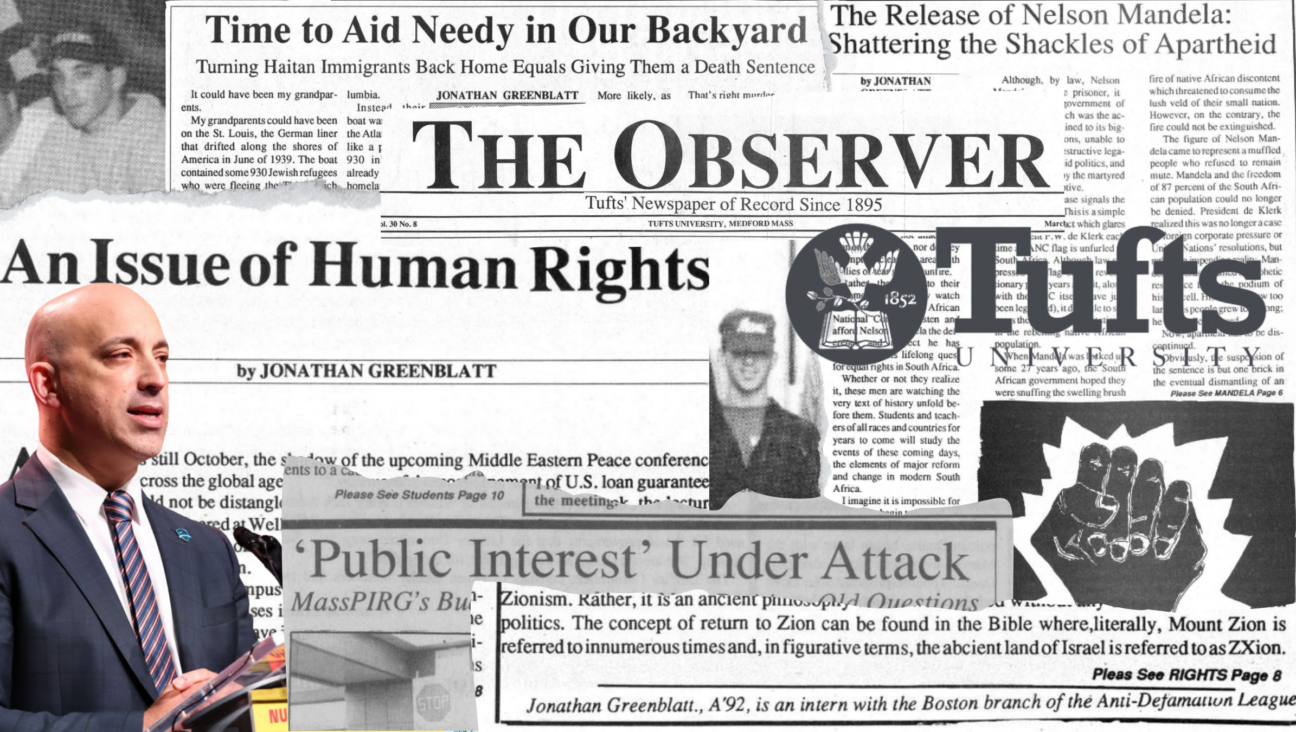Judges Slam Yeshiva University in $680 Million Abuse Case

Imagine you are in a car accident. It’s the other guy’s fault, and you know your insurance company will sue his. But should you then and there investigate the car manufacturer for deliberately ignoring a mechanical fault, even if you have no reason to know that’s true?
That’s essentially the question United States Circuit Judge Guido Calabresi asked August 28 as he lambasted a Yeshiva University lawyer for claiming that dozens of former schoolboys ought to have sued Y.U. decades ago for a sexual abuse cover-up.
Y.U.’s lawyer, Karen Bitar, argued that students should have found out soon after they were assaulted, during the 1970s, 1980s and 1990s, that Y.U. was deliberately indifferent to the fact that it employed abusive staff. Calabresi said: “It seems to me that’s a mighty hard way to look at this.”
Thirty-four former students of Yeshiva University High School for Boys sued Y.U. for $680 million in 2013. They claimed Y.U. administrators, trustees, and other staff, facilitated a massive, decades-long cover-up of abuse at the Y.U.-run high school.
They said that they first found out about the cover-up in a December 2012 article in the Forward.
The lawsuit was dismissed in January 2014 by United States District Judge John G. Koeltl. He cited federal and state statutes of limitations, noting that “the statutes of limitations have expired decades ago, and no exceptions apply.”
Under Title IX, students have three years from the time they become aware of a school’s deliberate indifference to their abuse to file a suit. To prove deliberate indifference, students must show that before they were abused, a high-ranking official knew that the school employed an abusive staff member and did not act appropriately.
Calabresi, part of a three-judge panel of the Court of Appeals for the Second Circuit, reminded Y.U.’s lawyer that not even Koeltl believed the statute of limitations began as far back as the time each of the students was abused.
Calabresi told Bitar: “Judge Koeltl knew what he was doing. I am asking if you know what you are doing?”
United States Circuit Judge Reena Raggi told Bitar: “You might want to think whether you want to push this.”
But Bitar said that it was incumbent upon each student as soon as they were abused to investigate their rights.
Bitar added that it was well known that one of the rabbis, George Finkelstein, abused students at Y.U.’s boys high school and that there was likely enough evidence at the time to mount a civil claim.
“They sat on their rights for between 20 and 40 years,” Bitar said.
Raggi said the victims’ main challenge was not to prove that Bitar was wrong, but to prove that Koeltl’s decision was wrong.
The victims’ lawyer, Kevin Mulhearn, said that a report into the abuse, commissioned by Y.U. in 2013, showed why students could not have brought claims before December 2012.
Out of the 34 victims, 9 students made 25 separate complaints about being abused. Quoting from Y.U.’s report, Mulhearn said that Y.U.’s lack of an appropriate response to complaints “caused victims to believe that their complaints fell on deaf ears or were simply not believed by the university’s administration.”
Mulhearn said: “The school made damn sure [the abuse] was not going to be revealed for 35-plus years.”
After the hearing, Mulhearn gathered the few victims and their families who attended, telling them: “We definitely have a shot.”
Barry Singer, one of only two named plaintiffs in the suit, said he came away from the latest hearing feeling that “Y.U. never listened and never listens, and neither do their lawyers — that’s the best chance we have now.”
A spokesman for Y.U. said: “We do no comment on pending litigation.”
Contact Paul Berger at [email protected] or on Twitter @pdberger

I hope you appreciated this article. Before you go, I’d like to ask you to please support the Forward’s award-winning journalism this Passover.
In this age of misinformation, our work is needed like never before. We report on the news that matters most to American Jews, driven by truth, not ideology.
At a time when newsrooms are closing or cutting back, the Forward has removed its paywall. That means for the first time in our 126-year history, Forward journalism is free to everyone, everywhere. With an ongoing war, rising antisemitism, and a flood of disinformation that may affect the upcoming election, we believe that free and open access to Jewish journalism is imperative.
Readers like you make it all possible. Right now, we’re in the middle of our Passover Pledge Drive and we still need 300 people to step up and make a gift to sustain our trustworthy, independent journalism.
Make a gift of any size and become a Forward member today. You’ll support our mission to tell the American Jewish story fully and fairly.
— Rachel Fishman Feddersen, Publisher and CEO
Join our mission to tell the Jewish story fully and fairly.
Only 300 more gifts needed by April 30























